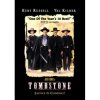With the 59th pick in the TDOS Cabin by the Lake Movie Draft, I select...
Brazil (1985):
Director: Terry Gilliam
Dir. of Photography: Roger Pratt
Writer(s): Terry Gilliam, Tom Stoppard
Score: Michael Kamen
Cast: Jonathan Pryce, Kim Greist, Robert De Niro, Ian Holm, Bob Hoskins
Genre(s): Science fiction, drama, satire, comedy
Runtime: 2 hours, 22 minutes
IMDb Entry:
https://www.imdb.com/title/tt0088846/?ref_=nv_sr_1
While the films I am selecting for this draft share thematic threads and aesthetic commonalities, many of them also share a history of troubled production. I find that I am deeply attracted to movies that have a messy and fascinating story to tell from behind the camera, in addition to the more widely circulated story they have to tell in front of it. Terry Gilliam is certainly no stranger to this phenomenon (To illustrate, Gilliam began writing his upcoming 2018 film,
The Man Who Killed Don Quixote, in 1989. He secured funding for it in 1998, and it's been mired in production hell ever since).
The “special features” of my selections are as important to me on my island as the movies themselves. It turns out that ambitious, cerebral filmmaking often results in a struggle to properly execute one's vision, as well as a battle over the creative virtues of a film and its commercial prospects.
2001: A Space Odyssey and
Close Encounters of the Third Kind were both plagued by technical and budgetary setbacks that caused enormous tension on the set.
Blade Runner, while not my selection, is among the most famous examples of that same on-set tension, while piling the difficulties of studio intervention on top of it. Harrison Ford referred to the making of
Blade Runner as "a b*tch." Steven Spielberg said
Close Encounters was "twice as bad and twice as expensive" to film as another famously troubled production of his that I cannot name due to draft rules.
In short, it ain't easy making a film that audiences will remember for generations. Terry Gilliam's
Brazil is perhaps a lesser known masterpiece of science fiction, but it's no less powerful in its attempt to craft a vision of the future as a way of commenting on our present
. It presents a world entirely different from those conceived by Stanley Kubrick and Ridley Scott in their respective sci-fi imaginings. Unlike Kubrick's cold and sterile and minimalist aesthetic, or Scott's graphic novel-inspired maximalism, Gilliam took his cues from the Art Deco movements of the early 20th century to design a dystopic future of gross consumerism and global totalitarian rule. The film seems to understand that every generation seems to finds for itself a longing for a more innocent past. This gets reflected in the film's production design, its score, and its themes.
Brazil is a strange and beautiful film, a cobbling together of science fiction, drama, romance, and satire. It is by turns both startlingly bleak and openly hilarious. It is at once Chaplin-esque in its physical comedy and Kafka-esque in its explorations of anxiety and alienation. There really is no other film quite like it, not even amongst Gilliam's other works. Unfortunately, its troubled production resulted in a protracted war over the final cut of the film, with Gilliam having to fight arduously to preserve his original vision. As with
Blade Runner, studio execs wanted to remove vital sequences for the sake of runtime, and they also wanted to close the film with a much happier ending that would otherwise compromise the film's artistic aims. The Criterion Collection version of
Brazil compiles together its many different versions, including the 142-minute "fifth and final cut," as Gilliam refers to it. That would be the one to watch, and I can't recommend this movie enough.
Brazil is perhaps less grandiose than
2001: A Space Odyssey, less aesthetically committed than
Blade Runner, and certainly less optimistic than
Close Encounters of the Third Kind, but it remains an overlooked gem that deserves your consideration.
PM sent to
@Sluggah.
























